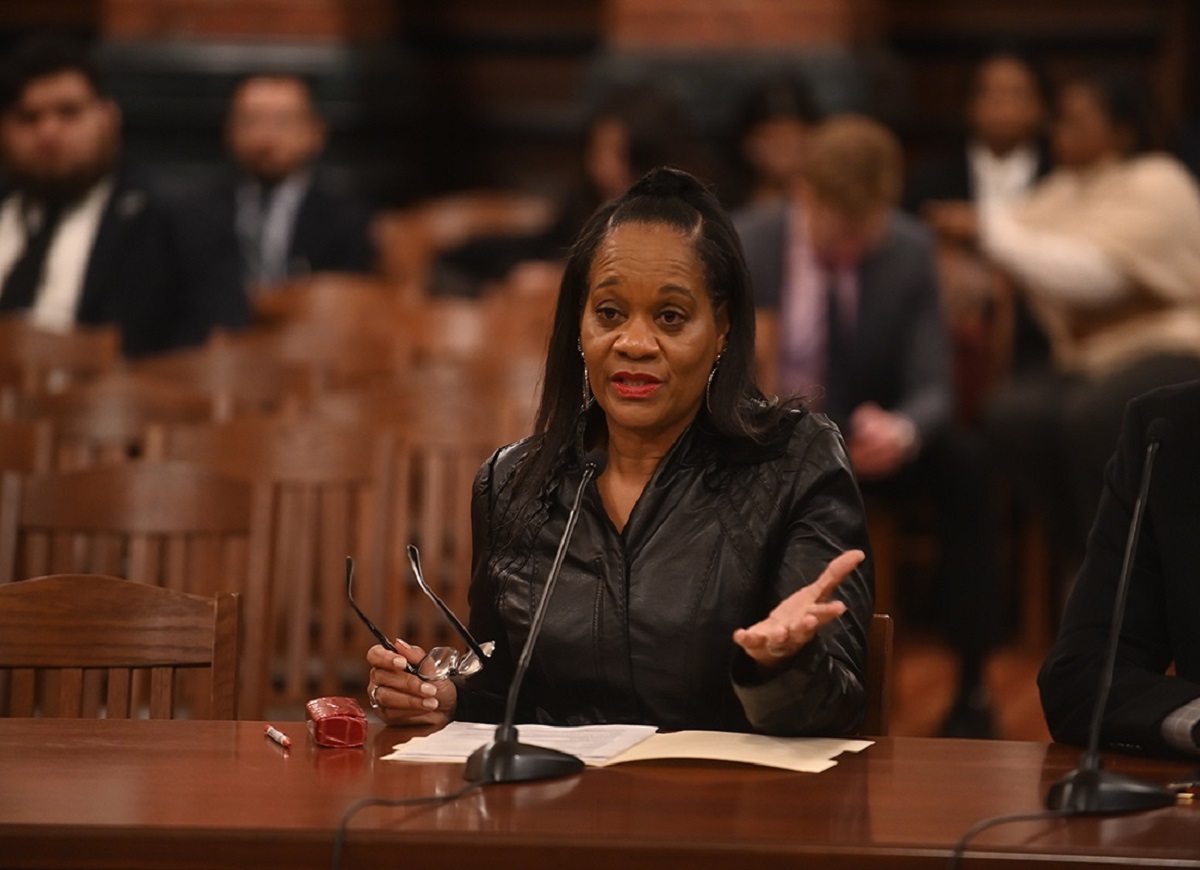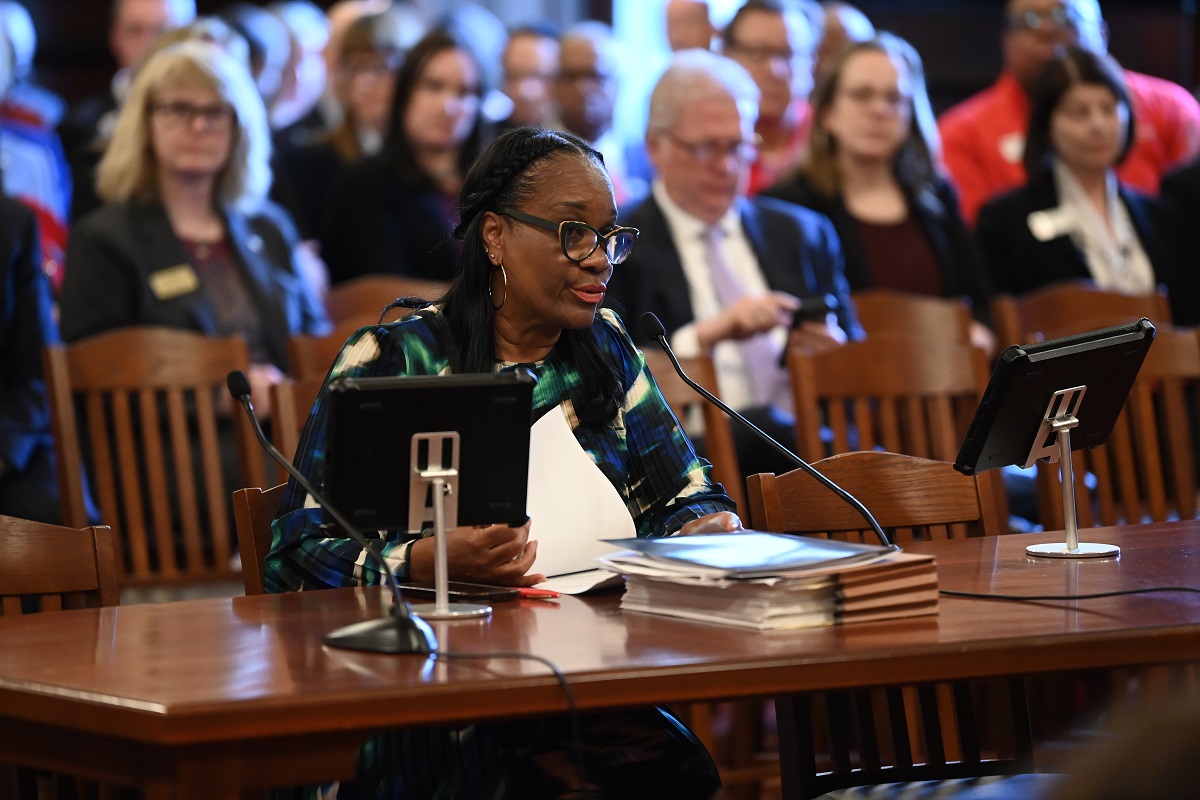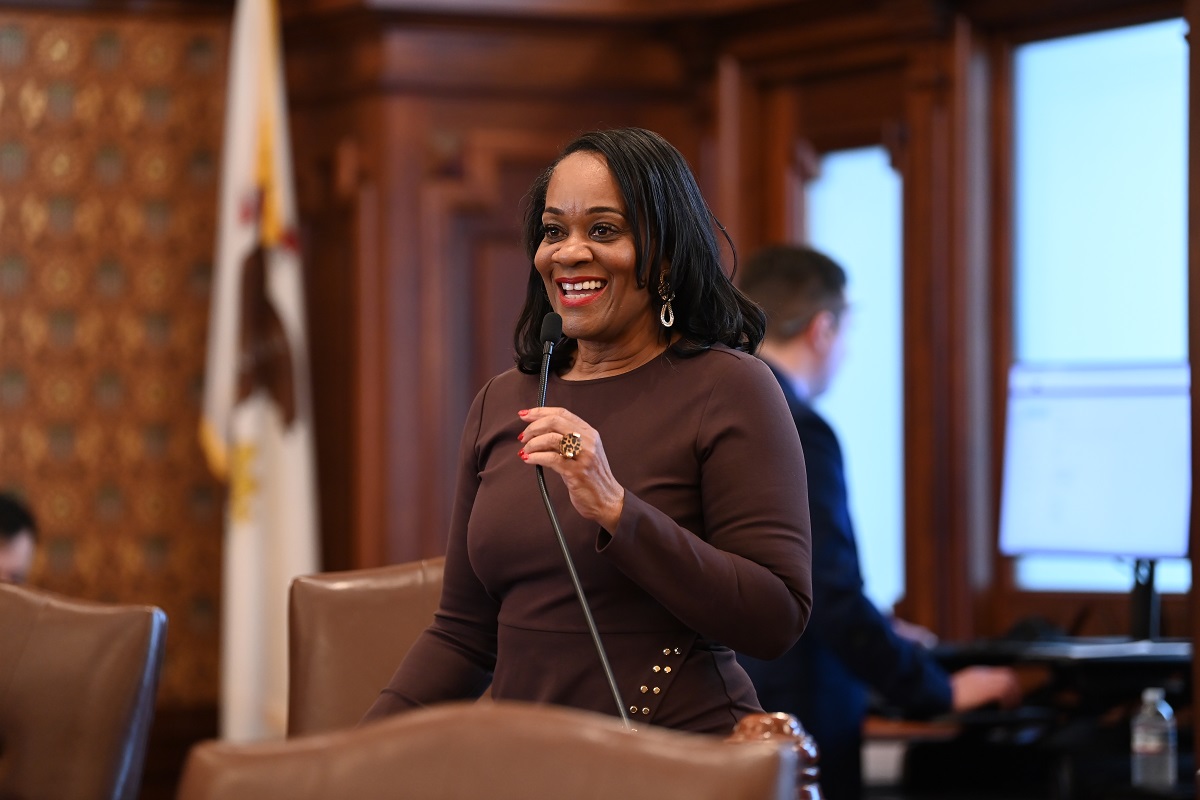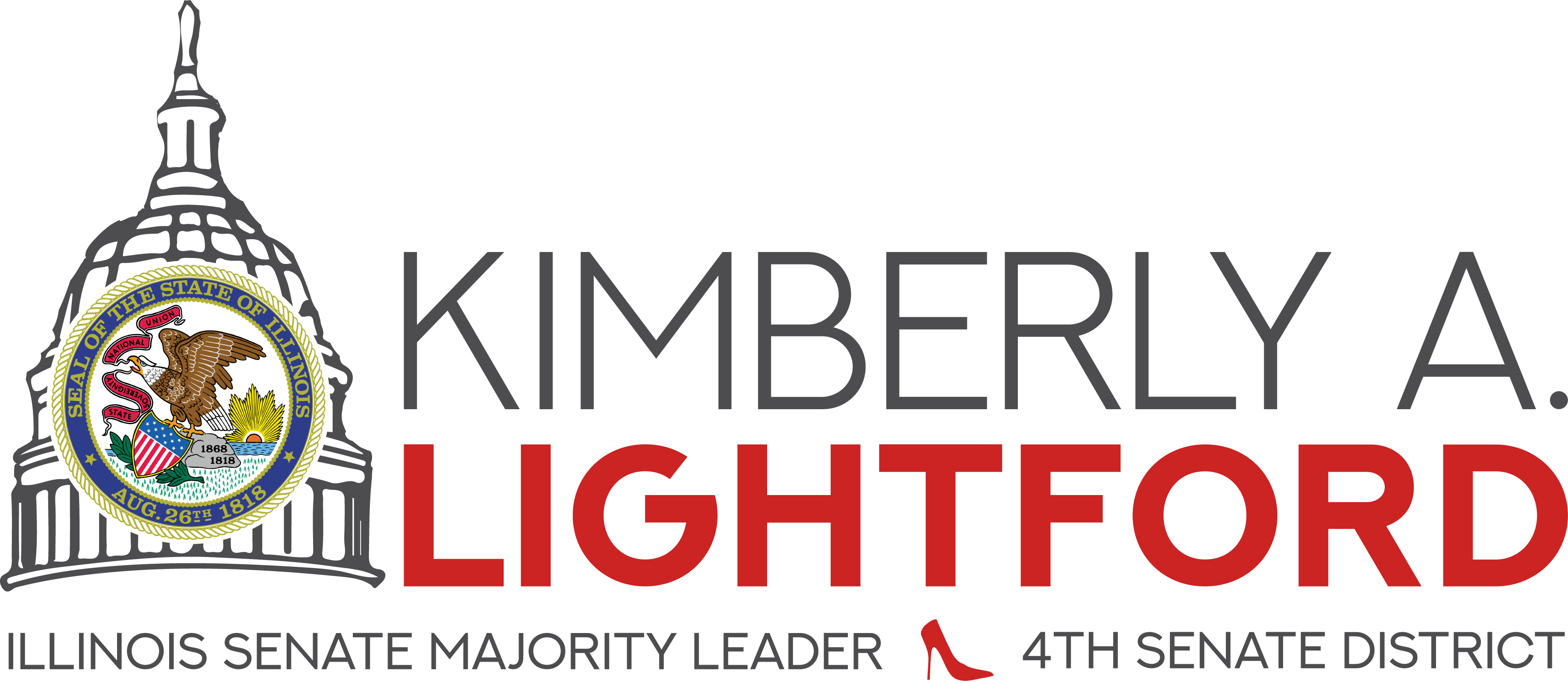Lightford fights to remove expulsion, suspension for preschool through second graders
- Details
- Category: News

SPRINGFIELD – All too often, students of color feel the brunt of being expelled or suspended from school, rather than being provided restorative approaches to help with their emotional and mental health – a phenomenon Senate Majority Leader Kimberly A. Lightford is fighting to change.
“Our education system has failed many children by simply denying them the opportunity to sit in a classroom,” said Lightford (D-Maywood). “We’re continuing to move toward a disciplinary system that prioritizes educating students by keeping them in school.”
Expulsion of students in kindergarten through second grade would not be permitted unless the child brought a firearm, knife or other object that could be used to harm another student to school.
Research from the University of Chicago using data from Chicago Public Schools shows that restorative practices are effective in reducing not only suspension and expulsion but also student arrests. As reported by Chalkbeat in 2019, early exclusion from school can trigger “a domino effect of negative interactions between schools and families,” increasing the risk of future exclusions and setting a child on the path of the so-called school-to-prison pipeline.
The measure builds upon Lightford’s previous work – Senate Bill 100 from the 99th General Assembly – which addressed the frequency and racial disparity of suspensions and expulsions by limiting their use, creating policies that re-engage students and avoiding interrupting a student’s learning as much as possible.
“I am tired of seeing our children set up for failure at a young age. Kicking them out of school doesn’t give them what they need to succeed – but our education system can be what changes their course,” Lightford said. “This measure becoming law would be a victory for our entire state and for every child in search of a bright future and an excellent education.”
House Bill 3772 passed the Senate Education Committee Tuesday.
Lightford leads conversations on equitable funding for higher education
- Details
- Category: News

SPRINGFIELD – Senate Majority Leader Kimberly A. Lightford is working to transform how Illinois funds its higher education system through legislation she outlined during a Subject Matter Hearing Wednesday.
“Despite education’s paramount importance, the disparity in funding among higher educational institutions remains dreadfully evident,” said Lightford (D-Maywood). “This imbalance not only undermines the principle of equal opportunity but also hampers our collective progress as a society.”
Lightford was instrumental in creating the Commission on Equitable Public University Funding in 2021. Over the years, the 30-person commission studied if public institutions of higher education are in dire need of a new funding model when serving underrepresented and historically underserved student groups, including Black and Brown students, as well as students from low-income families.
The commission found on average, university systems in Illinois spend over double the amount on academic and student supports – the spending that most directly impacts student success – than at its less-resourced regional universities. Worse, these arbitrary and inequitable allocation decisions have compounded yearly due to a lack of equitable distribution.
In response, Lightford is leading a measure to implement a student-centered, adequacy-based funding formula for Illinois’ public universities known as the Adequate and Equitable Public University Funding Formula. Lightford’s measure is similar to Illinois’ evidence-based K-12 funding model, taking a parallel approach for higher education by outlining a formula that accounts not only for the size of institutions and the types of academic programs they offer, but also demographic factors such as socioeconomic, racial and geographic diversity.
Combined, these variables would be used to calculate adequacy targets, or the optimal amount of annual funding each institution needs to fully serve its students.
“By investing in education, we invest in our future, unlocking the potential of every individual and fostering a more equitable, innovative, and prosperous society for all,” said Lightford. “It is time for us to prioritize equitable funding for higher education institutions and ensure that every student has the opportunity to fulfil their potential.”
Senate Bill 13 has been assigned to the Senate Executive Committee.
Lightford to put an end to resident dumping
- Details
- Category: News

SPRINGFIELD – Senate Majority Leader Kimberly A. Lightford is leading the charge to put an end to “resident dumping” – an inhumane practice in which a nursing facility discharges a resident and refuses to readmit them after a hospital stay.
"Resident dumping is a betrayal of trust at life's most vulnerable moment,” said Lightford (D-Maywood). “Seniors have made these places their sanctuaries, their communities and their final homes. To deny them return is to strip away their belonging, security and dignity when they need it most.”
To strengthen resident rights in nursing homes and assisted living facilities, Lightford’s proposal would enhance the involuntary discharge process within these communities. If a resident leaves the facility for a medical reason – and would not create imminent danger to themselves or others – the facility would be required to let them come back home under House Bill 1597.
“Resident dumping” affects thousands of nursing facility residents who are uninsured or underinsured, have a mental health condition, or have had to spend time in a hospital or rehab facility and find they’re not allowed back into their nursing facility.
“The true mark of a compassionate society is not how we care for the healthy, but how we protect those who depend on us most,” said Lightford.
House Bill 1597 passed the Senate Health and Human Services Committee Tuesday.
Leader Lightford works with Lt. Governor Stratton to bring menopause support
- Details
- Category: News

SPRINGFIELD – Many women – particularly those in underrepresented communities – endure untreated symptoms of menopause that negatively impact their quality of life. In turn, Senate Majority Kimberly A. Lightford is fighting for more critical access to care.
"Menopause represents a crucial public health concern that demands our attention, particularly for women in marginalized communities," said Lightford (D-Maywood). "Health care disparities disproportionately affect Black and Latina women, leaving many without sufficient resources and support during this significant life transition."
Lightford is working alongside Lieutenant Governor Juliana Stratton and Academy Award-winning actor and wellness advocate Halle Berry to ensure women have the knowledge and resources they need to receive appropriate menopause care. Senate Joint Resolution 25 would declare Oct. 12-18 Menopause Awareness Week. The resolution raises awareness about the expansive effects that menopause has on women’s health and how women can advocate for themselves.
A 2022 report from the National Institute on Aging found that Black women are less likely to receive menopause-related medical advice due to systemic health care barriers. Many endure untreated symptoms that negatively impact their work productivity and quality of life. These inequities make policy interventions like the Menopause Awareness Week resolution critical for ensuring fair access to care and workplace protections.
“Women’s health is a public health priority—and menopause advocacy is long overdue,” said Lieutenant Governor Stratton. “In a time when access to care and medical research are under attack, we cannot afford to let women’s health needs be ignored. Illinois is leading the way in ensuring that menopause is recognized, researched, and addressed through policy. We are not just having the conversation—we are taking action to close the gaps in care, workplace protections, and medical research.”
The Senate adopted the resolution Friday.
More Articles …
Page 6 of 159









